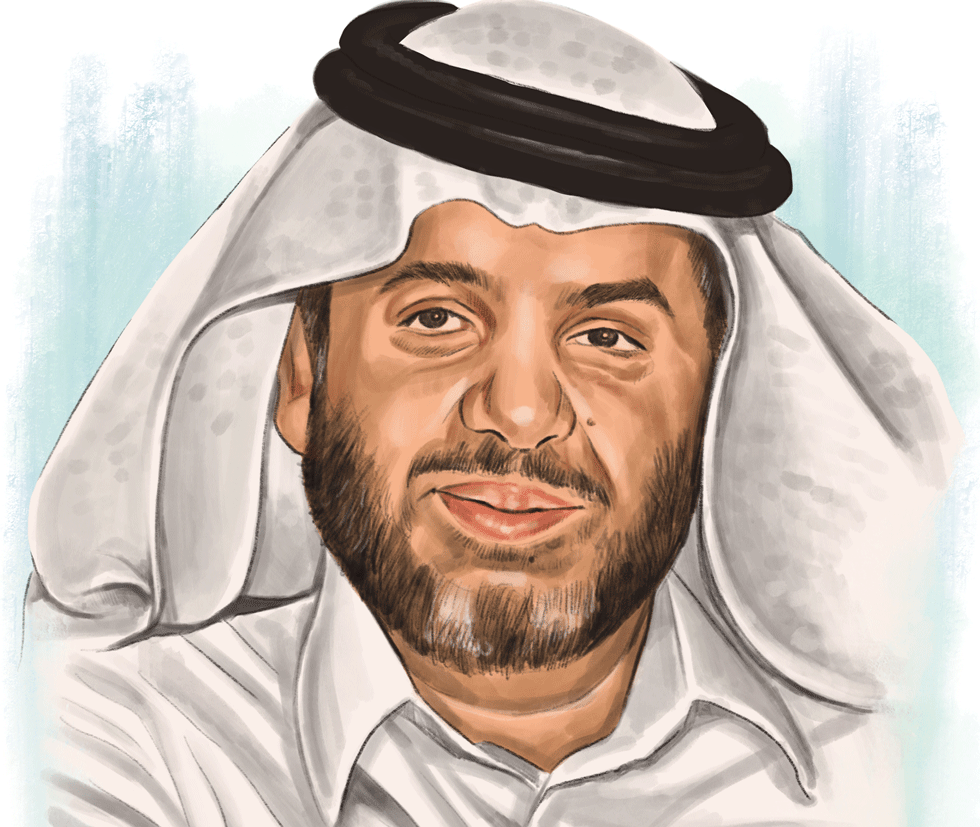

In the era of Big Data, everything is data. And thanks to the Internet of Things, data can be shared and used by people and machines alike to improve every aspect of our lives from online shopping to operating oil refineries.
But as well as faster communications, the digital transformation is disrupting historical systems and introducing new risks. None causes greater concern than our increased vulnerability to cyber attacks.
In the past few years, there has been a steady stream of headlines about large-scale cyber attacks ranging from malicious malware devastating systems to the theft by hackers of huge quantities of cryptocurrency.
The Gulf region has had to deal with several highly directed cyber attacks, most notably in 2012 when regional oil companies were attacked by the now-notorious Shamoon virus. However, cybersecurity experts say the main threat does not come from weaknesses in the technology.
“The biggest risk is usually people,” says Faisal al-Bannai, the founder and CEO of Abu Dhabi-based cybersecurity specialist DarkMatter.
“The technology is only as good as the people using it,” he adds. “It is a human problem. People do funny things. So, it really boils down to ‘did you deploy the right implementation?’
“A lot of the work that we are doing is around the people using technology,” he continues. “We need to build technologies that are invisible. That are not a hindrance. For example, we are already deploying technology where no password is required.”
Technology entrepreneur
Al-Bannai is one of the UAE’s leading technology entrepreneurs. In 1997, he founded giant electronic retailer and distributor Axiom Telecom. In 2017, Axiom recorded a $2.2bn annual turnover, employed more than 2,500 people and claimed to distribute up to 40 per cent of all devices sold in the region.
In 2014, Al-Bannai launched DarkMatter, the region’s first cybersecurity consultancy. Since its foundation, the company has expanded strongly, putting in place a large pool of global cybersecurity expertise in Abu Dhabi to support a growing portfolio of contracts to provide software, advisory services and implementation projects.

Now, the Abu Dhabi company is the region’s biggest homegrown cybersecurity firm, employing about 600 people at the start of 2018.
“About 75 per cent of our staff are in the UAE,” says Al-Bannai. “The rest are in our offices around the world, in Toronto, Finland and China. Our main solutions designers are based here. We currently have about 600 people, up from 400 last year. Hopefully, we will reach 800-900 staff this year.”
Most of DarkMatter’s work has come from UAE government contracts: about 80 per cent of business is currently from the government sector. The CEO is keen for this to change. “We want a 50-50 split between government and large enterprises,” he says.
Al-Bannai is keen to grow the business in the region, then globally. There are particularly good opportunities for DarkMatter in the GCC, he say. “The GCC is as hungry as anywhere else, but it is not a mature market and does not have a lot of legacy systems. So there is space in the GCC market.”
Saudi Arabia is the biggest opportunity in terms of the size of the market, he says, hinting that the UAE is likely to be DarkMatter’s best opportunity in the near term. “The UAE is spending proportionally more on technology,” he says.
“Saudi is the biggest market due to its population, but the UAE is big relative to the size of its population.”
Tackling challenges
One of the key cybersecurity challenges facing the region is the need for greater cross-border information sharing on cyber threats and attacks. “Information sharing is a challenge globally,” Al-Bannai says.
DarkMatter’s focus is on serving the region’s core industries, where there is a critical need to protect data and asset security.
“All of the large companies in the oil and gas and banking sectors have invested in top-quality security teams and are upgrading all the time,” he says. “But none of them are developing cybersecurity technology. They buy in the technology.”
Al-Bannai adds that trust is key to success in the cybersecurity industry. To achieve this, he says that DarkMatter provides customers with full visibility of DarkMatter’s software code.
In an industry as fast-changing as the technology sector, investing in research and development (R&D) is vital in order to remain competitive. Al-Bannai says that more than 35 per cent of DarkMatter’s employees are involved in development and R&D.
“We are setting up three dedicated R&D units that are building products for the next 36-48 months,” he says. “The first is artificial intelligence. The second is quantum technology – a balance of quantum computing and quantum algorithms; we are developing the first quantum resistant cryptocurrency. And the third is the advanced research stream.”
Al-Bannai says cybersecurity can no longer be treated in isolation as a specialist technology and must be seen as an integral part of network and system development. “Our core focus is on cybersecurity, but we have a company called Pegasus that does Big Data and large industrial platforms. That is where the future is.
“You can never have an intelligent city without security. Digital development without security is a disaster. So that is where the emphasis is, to bring security in at ground level.”
Biography2014 Founds DarkMatter2012 CEO of the Year Award and Dubai Quality Award2011 Arab Achievement Award2005 Lifetime Achievement Award presented by Sheikh Mohammed bin Rashid al-Maktoum,1997 Founds retailer and distributor Axiom Telecom1996 Master’s degree in shipping trade and finance from City University in London |
You might also like...

Iraq signs deal to develop the Akkas gas field
25 April 2024

Emaar appoints beachfront project contractor
25 April 2024

Acwa Power signs $356m Barka extension
25 April 2024

AD Ports secures Angola port concession agreement
25 April 2024
A MEED Subscription...
Subscribe or upgrade your current MEED.com package to support your strategic planning with the MENA region’s best source of business information. Proceed to our online shop below to find out more about the features in each package.








